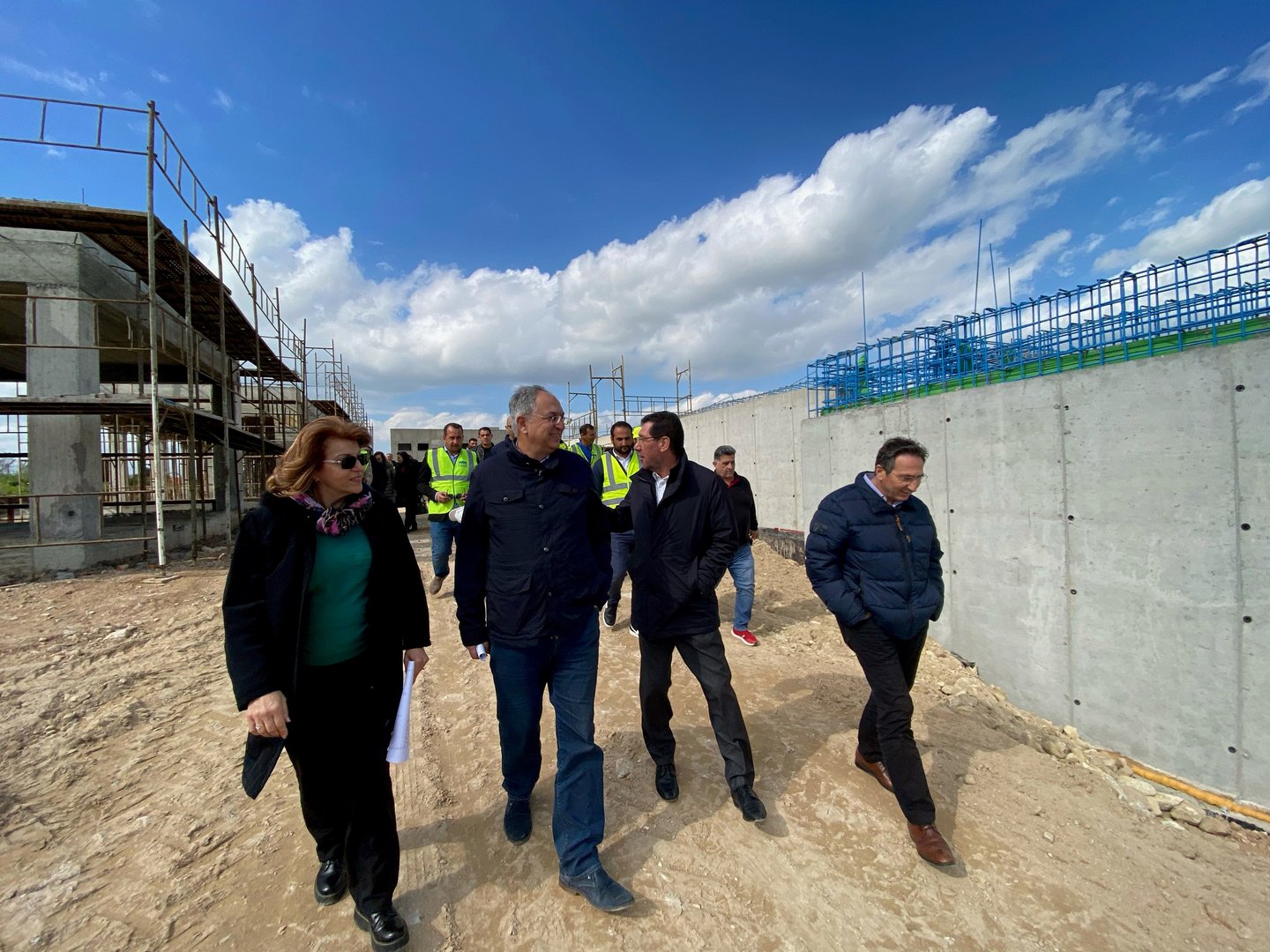Agriculture Minister Costas Kadis on Tuesday hailed his ministry’s work on green growth and the circular economy during a tour of the wastewater treatment plant project in Achna.
The plant is set to become operative by the end of the year.
“This is what green growth and the circular economy mean in practice, in real life and not just on paper,” Kadis said.
The project will see wastewater from the surrounding area utilised by eight communities, benefitting farmers in the red villages.
The plant will be powered by a photovoltaic park located on the premises.
“The project has a budget of over €30 million and will also include a dozen small and large pumping stations connecting it to nearby communities.
“I believe the entire project will contribute to the improvement of people’s lives in the area and will help the rational management of the resources at our disposal,” he said.
Before visiting the Achna site, Kadis also viewed a project to instal a transfer pipeline system from the Vasilikos energy plant to Nicosia.
Speaking from Lakatamia, where the pipeline system in Nicosia will be located, he said the project will be completed in two phases by 2029 and will meet water supply needs, indirectly acting as a relief measure for farmers.
Kadis was given a tour of the construction site and was briefed on the details of the project by the director of the Water Development Department Panayiota Hadjigeorgiou.
Upon completion the project, with more than 170km of pipelines, will cover the water supply needs of western Nicosia and about 30 communities located in western Mesaoria and mountainous areas.
According to Kadis, the first phase of the project, which will be completed by 2025, includes the construction of water tanks, anti-silting stations and pipelines running from the Choirokoitia refinery to Strovolos, Lakatamia, Tseri and Kampia.
Once the first phase will be completed, the municipal areas of Nicosia, Strovolos, Aglandjia, Engomi, Ayios Dometios, Latsia, Yeri and Lakatamia will benefit as well as the communities of Kotsiatis, Marki and Analiontas.
The second phase will also benefit Kapedes, Kampia, Pera, Psimolofou, Episkopio, Politiko, Ergates, Anayia, Arediou, Ayios Ioannos Malounta, Klirou, Agrokipia, Mitsero, Pano Deftera, Kato Deftera, Ayioi Trimithias, Paliometocho, Kokkinotrimithia, Mammari, Akaki, Meniko, Peristerona and Astromeritis.
“All these areas are relying on the rain for their water supply,” Kadis said, explaining that the ongoing project will guarantee them fresh water supply regardless of the weather conditions.
“That is why this is one of the flagship project of the agriculture ministry,” he said, adding that its total cost will amount to €70 million.







Click here to change your cookie preferences